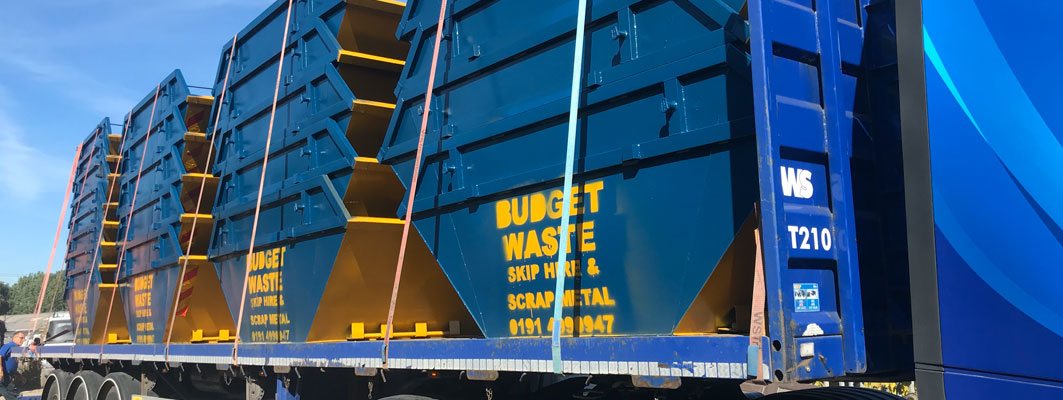
HOW TO OPEN A SKIP HIRE BUSINESS
I figured I would write this blog to try and guide anyone looking into starting to work in the skip hire business. I made a million mistakes and trying to figure this game out and the path was not an easy one. There does not seem to be a ‘how-to’ guide on this. I am not claiming that this is one, but, if it offers any guidance to anyone, I will be happy.
Thankfully along the way I met some great people who guided me and pointed me in the right direction. I know how lucky I was by these chance encounters and feel a duty to pass it onto anyone else wanting to get on this journey.
First things first, be prepared for long hours and lots of cash. The cash sounds great but just remember this does not relate into net profit automatically. Looking back, having a sturdy business plan and a realistic profit and loss sheet (that gets addressed monthly) is so important, you’ll find free profit and loss templates here on the Office Website. Being in control of your business is so important and knowing how much money you are making per skip depending on roughly the type of waste is a real power that will give you an edge on most of your competitors.
Your costs are going to be an issue to start with. It would be wise to have some money saved up or if needs be a loan, you can find funding such as business loans with various organisations, one example is North East Finance.
1 skip loader approximately 8 year old will cost around £15,000 and 50 8yd skips (second hand, if you can find any) are going cost you about £300 per skip, it all adds up. You do not have to start massive, but to make money the bigger the turnover, the more profit. Thankfully, there will always be waste to collect! There is a fantastic Facebook page called Skip Driver UK where you may find plant, vehicles and sometimes skips for sale. Facebook Market place can also be a fantastic online resource for finding second hand plant & equipment.
You will be in an industry that utilises reverse logistics. Simply put:
Click on the above link for the more detailed Wikipedia article. Due to its nature, it is important that your skip loaders are always taking or bringing a skip back. This will increase profit and help ensure that fuel costs are kept as low as possible.
There are multiple things that are needed to make a skip company work. Are you planning to process the waste? This is the only way really to make money in my opinion. You could just deliver skips and take them to a waste transfer station but be aware if a station shuts down or some of equipment breaks down and for whatever reason you cannot tip, then you are going to be stuck with some waste that you can’t get rid of till who knows when. Then you’ll have the added problem of 20 or 30 skips being stuck on customers driveways with them screaming for them to be removed. Either with a transfer station or without, you are going to require a yard either for storage of empty skips or to operate your waste transfer station. I will go through tips and advice on yards and permits later, but it is important to know this as leaving skips on the floor with waste in them classes your site as an illegal waste transfer station and you could be fined or prosecuted.
With your own waste transfer station, you can take waste from other companies too. Whether man in a van types, one man band skip drivers to bigger companies, providing they have a waste transfer note and an in date waste carriers license. Having a waste transfer station basically allows you to take waste in and process it, separate it and then turn it into another type of waste or sellable product that is no longer classed as waste. The Environment Agency us EWC Codes to categorise waste, also known as the European Waste Catalogue. For example, if you take in mixed builders waste at 17.09.04, run it through a Trommel and picking you should produce waste streams such as 19.12.12 and 17.01.02. These 2 codes are cheaper to dispose of at landfills rather than 20.03.01 (mixed municipal waste), sometimes by as much as £100 per tonne cheaper. If you’ve your picking station and Trommel finely tweaked you could be expecting a free tip on clean hardcore also known as rubble, clean brick or 17.01.02. Maximising waste separation is key to maximising profits. Don’t also forget a magnetic band pulling off small pieces of waste metal can produce heavy dense scrap metal, once again bringing in a good rebate and offsetting the high operating costs.
Be aware that although profits can be small, 85k turnover will come around quick and so will being VAT registered. This is fine and needs to be taken into consideration with your P and L sheet, but it is better to go bigger as that 20% tax will eat into your profit unless you get well above the cliff limit. Sage Business cloud Accounting I found is a good piece of software to use at it has an online service to take payments that is easier, I found at least, as opposed to a PDQ machine and having to post out receipts. Invoices can just be sent via email and you can also have a log of all your clients who have used before. Also allows a bookkeeper, who is an absolute must, to keep track of any money owed and tax obligations that could land you in hot water if you are not keeping track of it. Make sure all your cash is logged. Having lots of cash can be the so deceptive as it can create an illusion that you are making more money than you have! A good accountant is important too and a necessity. Using them as your company address is a good idea too as it means bills and any important information is sent to them and opened and read.
Filing and keeping track of letters for bills and any others is so important too as things can creep up on you when you are busy in your own business with the daily stress. A way of keeping this stress to a minimum is to make sure you pre-emptively deal with it or sort it before it comes a problem. Difficult issues that are left are the ones that fester and do not let you enjoy life. Most times the most ‘difficult’ ones are the ones that can be sorted easiest, at least in my experience. Just remember there are going to be problems and that is just the way life and business is. It would be silly to think there would not be any problems.
I will be updating this every other couple of month as of February 2023, with specific sections of the business such as:
- Waste Handling Equipment
– Site Location, facilities
– Transport and the DVSA
– Environment Agency and permitting
– How to build a customer database
– Trommel fines, landfills,
– Marketing
– Recruitment and a host of other related subjects.
